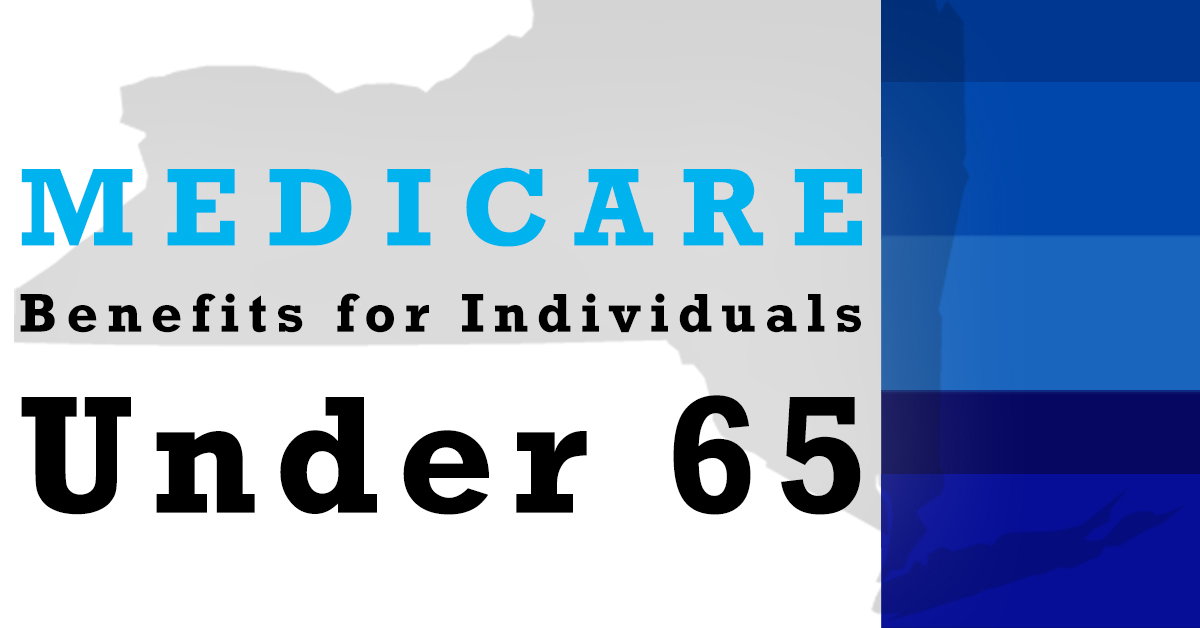Did you know that you may qualify for Medicare even if you are under the age of 65?
Individuals under 65 who’ve received 24 months of social security disability insurance (SSDI) payments are eligible for Medicare.
How do I qualify for Medicare through SSDI payments?
There are numerous conditions that may result in qualifying for SSDI payments. Not all qualifying conditions are physical: many people who have received SSDI benefits qualify due to a mental impairment.
Before you can qualify for Medicare, you must obtain a determination of eligibility for SSDI benefits. Once a determination is made, there is a five month waiting period before benefits are paid. Thus, twenty-nine (29) months must pass from the initial SSDI eligibility determination before Medicare coverage begins. You also qualify without having been on SSDI for 24 months if you have either end stage renal disease or amytrophic lateral sclerosis.
If you qualify for Medicare due to a disability, Medicare provides the same coverage as it provides to seniors—not just care related to your disability.
Are SSDI Qualified Medicare Enrollees Eligible for Supplemental Plans?
Medicare recipients qualify for Medicare supplement insurance programs, even if they have not reached the age of 65. Despite qualifying, more than 20% of Medicare recipients under age 65 have no supplemental coverage. This can result in higher out-of-pocket costs. Medicare recipients also qualify for Part D prescription drug coverage. Approximately 75% of Medicare recipients under 65 have a Part D plan.
Let us help identify the best coverage options for your medical & financial situation.
How Long Can I Remain Enrolled in Medicare If I’m Under 65?
Individuals under the age of 65 who qualify for Medicare and work may not qualify for Medicare indefinitely. During any five year period, an individual may enter a 9 month trial work period, during which you may earn over a certain amount of income per month. After this period, an individual can continue to work and earn income over a certain level, called the “Substantial Gainful Activity” level. For an additional 93 months, during which the individual is still covered under Medicare Part A, and will pay premiums to access Medicare Part B. Following this eight and a half year period, individuals can continue to receive Medicare Benefits as long as they remain medically disabled, becoming responsible for some Medicare Part A payments.
Get Covered
If you qualify for Medicare due to a disability, Medicare Supplement Plans, Part D plans, and other policies that are available to all individuals on Medicare can help you manage your overall out-of-pocket medical expenses.
